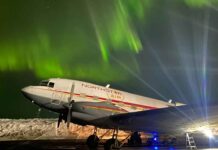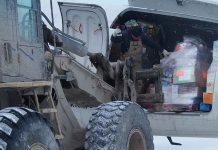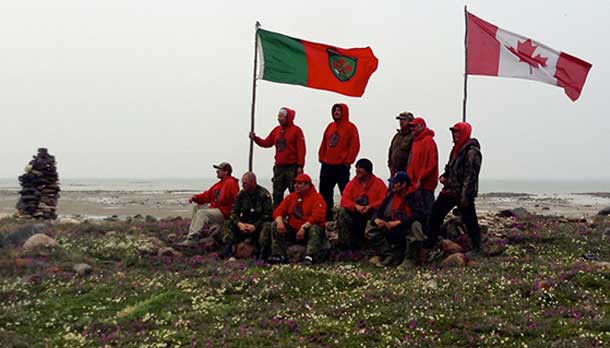
PEAWANUCK – As Canadian Rangers, we are the eyes and ears in remote parts of Canada, and we plan exercises, training, and excursions out on the land to sharpen our search and rescue skills.
This past weekend, six boats filled with 10 Peawanuck Canadian Rangers launched out, originally headed for the Sutton River, along the coast of Hudson Bay. Plans on paper make the trip seem simple but once on the water the weather, environment, and equipment all become factors that can change in an instant.
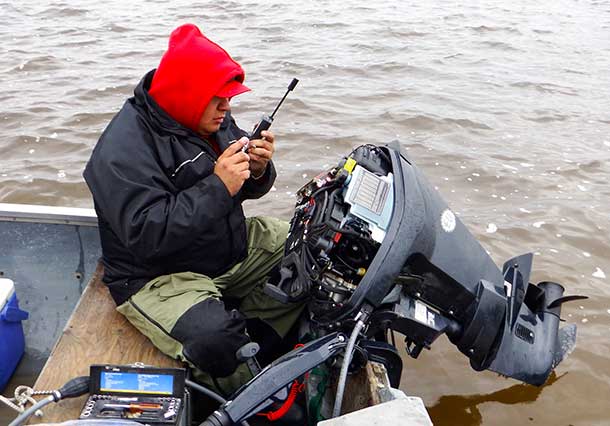
Five minutes out and we encounter a problem. Sgt. Matthew Gull’s outboard motor quits on him. Using a satellite phone he makes arrangements to switch motors and tells me to continue on with our instructor Sgt. Dan Stortz and the other Rangers to the mouth of the Winisk River, which feeds into Hudson Bay. Right before we get to the old settlement of Winisk another boat is floating in the water. More engine problems. Ranger Maurice Mack’s boat is towed to the bay by Ranger Mike Hunter.
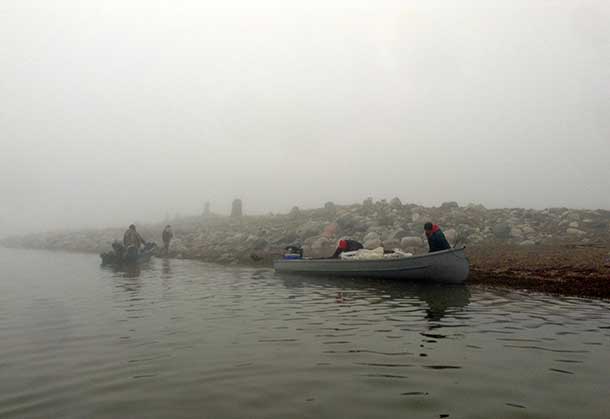
There is fog once we reach the bay and it’s been raining heavily since departure – we are pretty much soaked. As we wait for Sgt. Gull to arrive, elder Mike Hunter breaks out his camping gear knowing the weather will not improve enough to continue our journey. We make camp and fill our bellies with the finest meal rations can offer.
Sgt. Stortz explains that “Rangers are considered experts on the land,” adding, the purpose of these exercises is “To not only hone their skills on the land, but to also practice military skills such as search and rescue, ground search and rescue, cold water immersion and recovery, and learn different ways to interact with other members of the community in case of a joint military operation.”
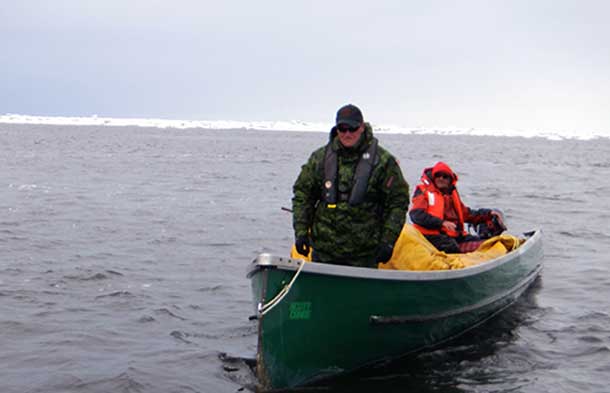
Ranger Mack arranges to double back to Peawanuck at the crack of dawn to replace his broken outboard motor. He returns a few hours later and we agree to continue our journey east on the Hudson Bay. Ranger Mike Hunter cautions about the upcoming weather forecast and says it will be quite the journey back. Sgt. Gull instructs us “We will leave in two hours.” But the Rangers tear down camp in 20 minutes and are ready to rock n’ roll.
Before leaving the Winisk River we make sure to fill our jerry cans with fresh water – there is no fresh water supply near our next camp.
We make camp at Kakakeeshipinuck (Cormorant Point). On the way, we ride further into the bay, to where the ice is, for calmer waters. Although it’s July, it’s quite chilly. I take off my gloves and quickly feel my hands getting cool and tingly, before seeing Ranger Hunter up ahead, driving his boat with no gloves on at all! He is used to the cold, checking fish nets at forty below in the winter without grimacing. He is 82 years old and still full of piss and vinegar.
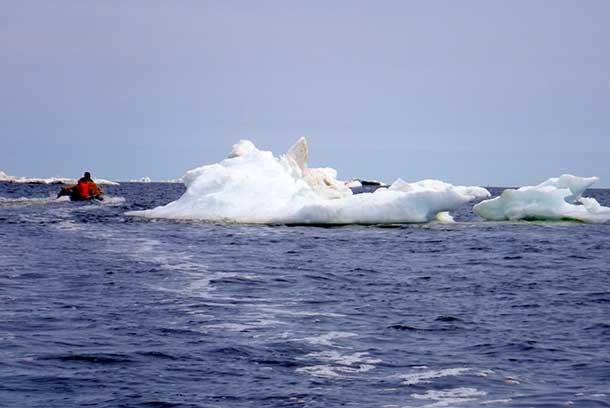
When we arrive at Kakakeeshipinuck three hours later it is almost high tide. We slowly drag our boats to shore where the seaweed sits, marking the high water level.
It’s essential to be able to catch and secure food sources when out on the land. Sure, we pack rations but we love to eat wild food. Four nets are set and the next day the Rangers are rewarded with fresh fish. A fish fry in the evening satisfies nicely, and a bonus for me is when I find some hot sauce from the ration kits.
On the third day before our target shooting we spot seven caribou on a ridge, west of camp. Ranger Jason Metat is eager to feed his family. It is a lot of hard work bringing the caribou back to camp, but a few trips with a toboggan and backpack gets the job done. It’s a 40 minute walk one way from camp to the ridge, but seems even longer when the mosquitos are out in full force.
Ranger Hunter’s words hold true and it’s quite the journey heading home.
We leave at 8 a.m., nearly high tide. Of course, it started to rain and the return of heavy fog didn’t help. We trusted our GPS equipment and travelled close together. Forty minutes into the ride the fog lifted a little and we picked up speed. With the west wind in our faces, it took us six hours to make it to the mouth of Winisk. The wind was howling and the waves were unyielding. Bailing out the water that came crashing into the boat became a necessity, both bow and stern.
After what seemed like forever the navigators started upstream along the Winisk River. Sgt. Gull grabbed a handful of water and tasted the freshness of it. The coast was clear! We were free from the clutches of the relentless coastal waves. I could finally drink my hot tea, beckoning me, as I sat clothing drenched and soaked to the bone.
Upon returning to Peawanuck, Sgt. Stortz reflects on the trip, “My experience was good. It was great to go out with the Rangers from Peawanuck. Especially to go out on the bay – something that we don’t get to do very often as soldiers from the south. It was great to see the experience of the Rangers on the bay when things got rough. They remained calm and there was obviously some good skills there that kept everybody safe.”
Sgt. Stortz explained the Rangers affiliation with the Canadian Military. “The rangers are part of the primary reserve, they are part of the military. They do not participate in traditional military roles such as combat. Not trained to do so, that is not their mandate. They’re strictly there, like I said, (as) the eyes and ears of the North – there to help protect and watch out for Canada’s sovereignty.”
Article and Photographs by Pam Chookomoolin
Pam Chookmoolin is a journalism student training with Journalists for Human Rights.

